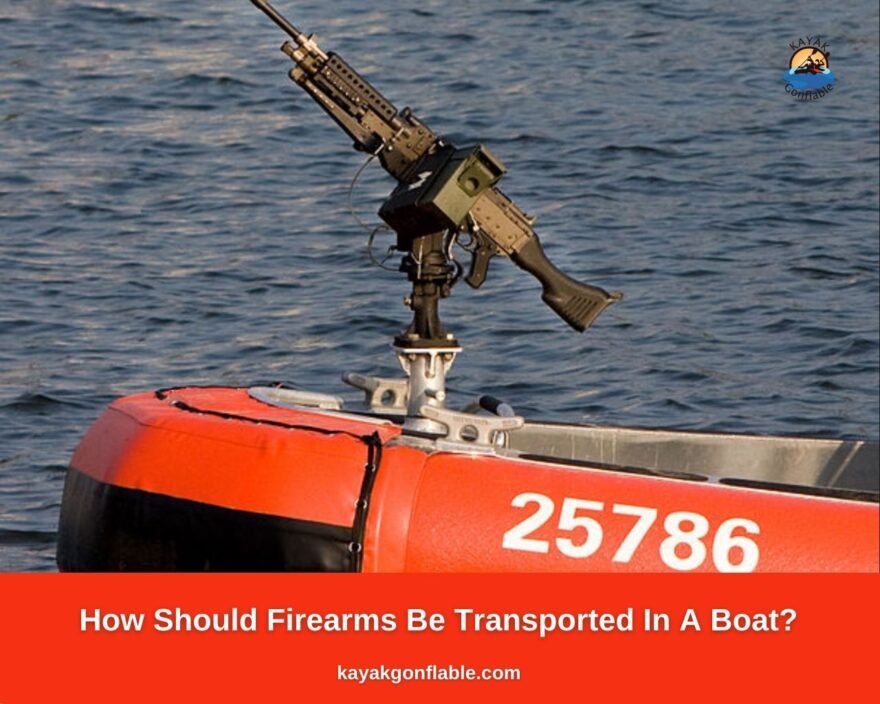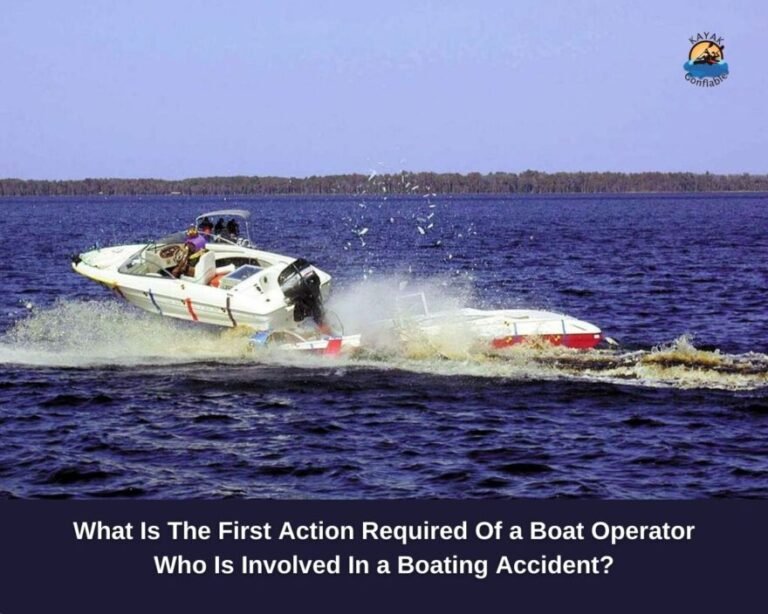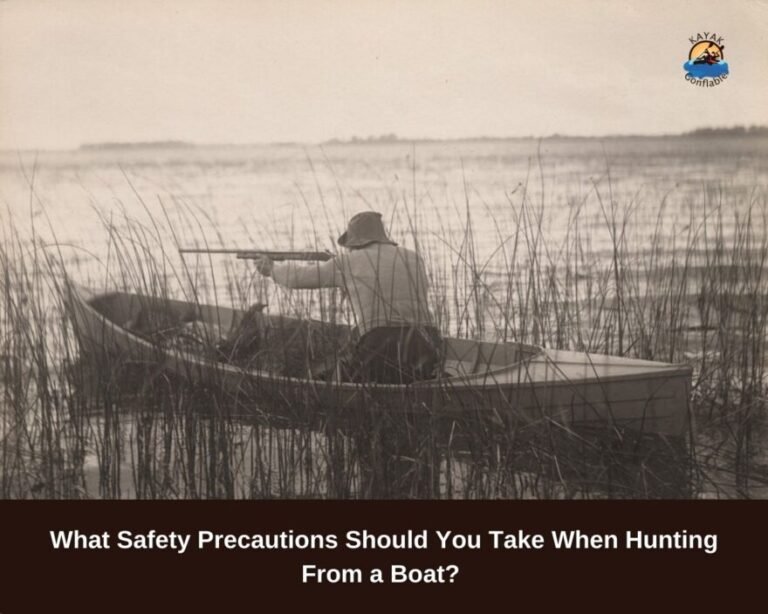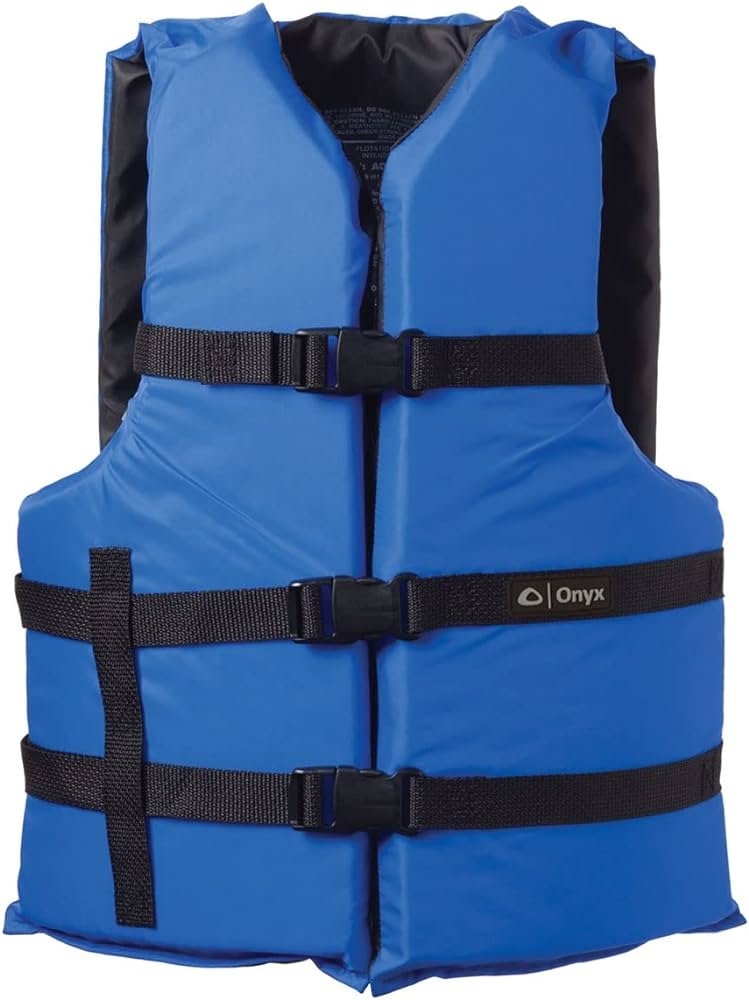How Should Firearms Be Transported In A Boat?

What are Firearms?
Firearms are weapons that are used to fire bullets or other projectiles into the air in order to hit a target. There are many various types of firearms, but they all have some characteristics in common.
Handguns and rifles are the two types of firearms available. Handguns are more compact and portable than rifles, but they have less power and accuracy. Rifles are bigger and more powerful, but they also take more practice to master.
The handgun is the most prevalent sort of firearm. Handguns are small, compact firearms that may be carried openly and easily concealed.
Rifles are the second most popular firearm in the United States, accounting for more than a third of all firearms. Shotguns are the least popular firearm in the United States, accounting for only about a tenth of all firearms.
Some firearms, such as shotguns and rifles, use powder, while others, such as pistols and revolvers, use gas. From handguns to machine guns, firearms come in a range of shapes and sizes. They are suitable for hunting, self-defense, and recreational purposes.
Why Is Transporting Firearms in a Boat Important?
Although the practice of smuggling firearms in boats is no longer as widespread as it once was, it is still an option. There are several reasons why firearms should be transported in boats.
- You can ensure that firearms are not available to youngsters or unauthorized individuals while moving them by boat, and you can avoid the inconveniences and delays that come with driving.
- Boats are perfect for traveling in isolated places since they can transport significant amounts of food, water, and other supplies while simultaneously offering a safe vehicle for transporting weaponry. You can even utilize your boat as a makeshift shelter by launching it into the sea.
- In an emergency, boat transportation enables quick and easy access to weaponry
- Traveling by boat is a smart idea because waterways are often safer than roads when it comes to gun accidents, and boats provide a level of privacy that is difficult to achieve while traveling on land.
- Many people use boats to hunt, and safely transporting firearms for use is crucial.
Types of Firearms that can be Transported on a Boat
The types of firearms that can be transported in a boat differ based on the boat’s manufacture and model. Some boats have gun racks built in, while others require a separate storage container.
To avoid illegal access, many boaters choose to transport their firearms in a lockable container or gun rack. When transporting firearms by boat, they must be emptied and enclosed in an appropriate case or box.
Only a few types of firearms are permitted to be brought aboard a boat. Due to their small size and ease of handling, handguns and shotguns are the most frequent. Rifles, machine guns, and cannons are among the other armaments that can be transported by water.
How to Pack and Transport Firearms in a Boat
It can be difficult to pack and transport firearms in a boat. Ensure that your firearms are securely stored and are not exposed to dampness or direct sunlight. To pack and travel your firearms securely, follow these guidelines: Secure firearms in a hard-sided container or case that is inaccessible from the boat.
- Keep firearms out of the hands of youngsters and those who shouldn’t have access to them.
- Transport firearms in a way that prevents them from being dropped into water by accident.
- Never store a firearm in a section intended for ammo.
- Never use a non-watertight dry-storage container.
- Never keep firearms in a compartment alongside flammable or poisonous materials like fuel, paint, insecticides, or other chemicals.
- When transporting firearms on a boat, follow all local and federal rules.
- When transferring firearms on a boat, be sure you have the necessary licenses and permissions.
- Always follow the manufacturer’s safety instructions for your handgun. Make sure you are aware of local fishing regulations when traveling in coastal areas, as shooting any fish from a boat can be considered poaching.
- If you’re traveling in a remote area, be sure you get permission before entering private property.
- Never put a handgun in the hands of someone who is inebriated or hasn’t had sufficient training!
- Use sturdy anchors or ropes to secure the firearm rack or storage space to the boat.
- Finally, ensure sure you have a current hunting or fishing license for the country you’re visiting.
Why it’s Important to Follow the Law when Transporting Firearms in a Boat
Boating with firearms may appear to be a fun and convenient way to go around, but it’s vital to remember that carrying firearms on a boat is illegal.
Even though many people believe they are free from the prohibition, federal law nonetheless considers transferring a firearm in a boat to be “transportation of firearms.”
It is critical to understand and follow the law when traveling with firearms on a boat. The firearm must be unloaded and stored in a lockable container in most circumstances. In boats over 16 feet in length, firearms are prohibited.
The driver and passengers must not have easy access to the firearm. Carrying a firearm in a boat that goes in state waters also has its own set of rules. To prevent fines or other penalties, it is critical to research these rules and follow them carefully.
Transporting Ammunition
It is critical to be able to quickly transfer munitions to the battlefield in the event of a tragedy or conflict. Ammunition can be transported in a variety of ways, but by boat is one of the most prevalent.
There are numerous advantages to transporting ammunition by watercraft. Boats are speedier than automobiles and can navigate rivers and shallow water. They are also easier to conceal than trucks and can transport more ammunition.
Ammunition in boats isn’t a new concept; it’s been around for a long time. It is mostly used for hunting and sporting clays, but it can also be used for self-defense.
When moving ammunition in a boat, there are a few things to keep in mind. The first is the distribution of weight. Make sure the weight is spread evenly to prevent the boat from sinking. The form of the bullets is the next factor to consider.
Steel or tungsten pellets are the ideal shapes to utilize. When these hit a boat, they don’t expand and create a considerably smaller hole than a hollow point bullet. You can store ammunition in the hull of your boat or in storage compartments beneath the deck.
Before determining what to transport and where to transfer it, it’s critical to complete your homework. It’s recommended to utilize containers made of a material that won’t be destroyed by water or chemicals if you’re transporting ammo by boat.
A wooden box, a plastic tub, or any other waterproof container will suffice. It’s critical to keep ammo dry as much as possible when transporting ammunition by boat.
What to do if you see a Boat with Firearms
The best thing to do if you see a boat with firearms on it is to alert the authorities. Try to take down the vessel’s flag, steerage, and/or mainsail if you are in a safe position to do so.
If you are unable to properly remove the vessel’s flag or sail, do everything you can to get away from the boat as soon as possible.
Frequently Asked Questions
Can you carry a gun on a boat in Australia?
In Australia, gun ownership is severely regulated. While it is permissible to own a handgun at sea, carrying one on a boat in Australian waters is prohibited.
To own a gun, you must have a valid license, and you must store your firearms safely when on the sea. While this legislation may appear to be onerous, it is necessary for public safety.
Is it legal to shoot from a boat in Texas?
Shooting from a boat is lawful in Texas if you stay within 500 yards of the shoreline and don’t fire your weapon inside 500 feet of a person or structure.
This isn’t simply a fishing rule; it’s a hunting law as well. You have the same rights to hunt from a boat as if you were hunting on land. You must take your prey with the least amount of harm possible, and you must not damage or destroy any property while hunting with your boat.
The hunter must be at least 16 years old and have a valid hunting license, according to the legislation. While shooting, the hunter must remain on board the boat at all times.
What safety precautions should you take when hunting from your boat?
Hunting from a boat can be a thrilling and enjoyable activity, but it is not without risk. Here are some safety precautions you should follow to ensure your safety and that of your equipment:
- Always wear a life jacket when on the water.
- Double-check that your boat is registered and insured.
- Make sure the hunting area is well-marked and well-known to you.
- Check that your boat is in good operating order and that all of the hardware is in good working order.
- Before going out, check the weather forecast and be prepared for any unexpected changes.
- Make sure your hunting equipment is safe and well-fitted, and keep an eye on your hunting buddies.
- Be aware of the rules and laws in your area.
- Bring extra food and drink with you.
- Maintain contact with your hunting companion.






